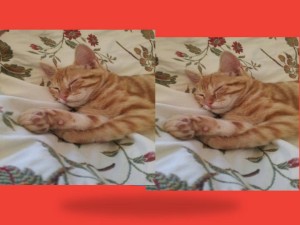I made a startling discovery yesterday while doing some online research.
I stumbled upon a website that delivers web writing services.
But as I skimmed through the pages, many of the words and sentences used sounded very familiar; in fact they sounded exactly like the combination of words and phrases I would use…
I quickly skimmed through my own website and noticed that some of the content had clearly been ‘lifted’ verbatim from my website.
I noticed that the writer also seemed to have done exactly the kind of work I have done in the past (with the same job titles).
I must admit that my initial feelings of casual interest swiftly changed to indignation when I discovered that the writer’s choice of blog name – Content Matters – had also been taken from my blog.
It is often said that imitation is the sincerest form of flattery, but when it happens, how should you deal with it?
All rights reserved and copyright
The first thing you should do (which I did when I first launched my website in 2009, is ensure that you clearly state the words: ‘All rights reserved’ and add the copyright (c) symbol to show that you are the owner of the work. And make sure it appears on all pages of your website.
Add the year or format it to show the start year and the current year (e.g. 2009-2015). This lets everyone know that all of your content is covered from the date first published, to the current date.
All rights reserved means that you have and retain exclusive rights to your own work under copyright law.
And as the copyright holder, you are letting everyone know that you are keeping hold of those rights. Anyone wishing to use or publish your work should seek your permission first.
Contact the person who has copied your work
This can be tricky, especially when dealing with words that have been copied, but a tactful and non-confrontational approach – via an online form, comment box or email, should do the trick. In my case I put the following on the writer’s blog message board:
‘I came across your website by accident today.
I am amazed at how similar the content and format on your website are to my own website – Simply Write – which I launched back in 2009. Even the name you have given your blog – Content Matters – is identical to one I gave my own content blog. I’ve been writing and running my Content Matters blog on my website since 2010.’
My comment was stored for moderation and it was not (as far as I know) posted to the live website. Many hours later, I noticed that my comment had not been posted, but it had clearly been read.
I checked the website and noticed that some textual changes had been made, and that the blog name had been removed.
So my approach worked!
Keep a check – but don’t become obsessed
Having experienced this, I’ll be doing a quick check of competitor sites every so often from now on – and would recommend you do the same. It will help to alert you to any plagiarism that might be happening.
There are also tools that can check for matching content. But while keeping tabs on what’s out there is a great idea, try not to obsess about it.
But to cover yourself, if you are considering quoting or using someone else’s work, get their permission first and attribute the information to them.
For other types of intellectual property, such as images, a similar process applies. Most of the images on my blog posts are from free image banks where the image owners are more than happy for me (or anyone else) to use their images as long as I credit the image to them by name.
Posted by DEBBIE THOMAS 30 June 2015